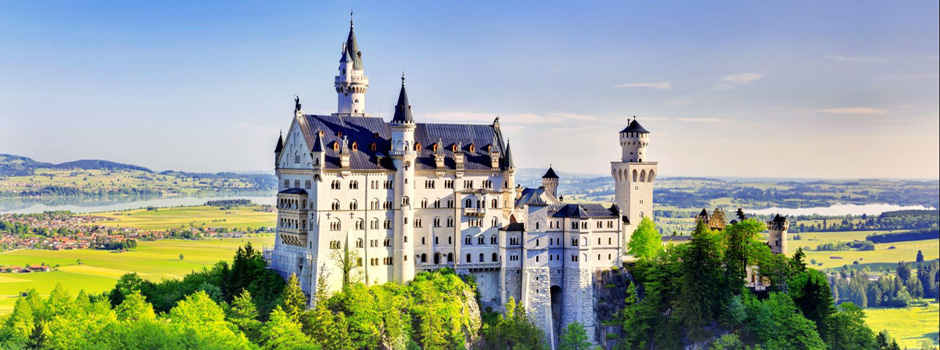
TOURISM
Germany is the seventh most visited country in the world, with a total of 407.26 million overnights during 2012. This number includes 68.83 million nights by foreign visitors, the majority of foreign tourists in 2009 coming from the Netherlands, the United States and Switzerland. Additionally, more than 30% of Germans spend their holiday in their own country. According to Travel and Tourism Competitiveness Reports,
Germany is rated as one of the safest travel destinations worldwide.
The official body for tourism in Germany is the German National Tourist Board (GNTB), represented worldwide by National Tourist Offices in 29 countries. Surveys by the GNTB include perceptions and reasons for holidaying in Germany, which are as follows: culture (75%), outdoors/countryside (59%), cities (59%), cleanliness (47%), security (41%), modernity (36%), good hotels (35%), good gastronomy/cuisine (34%), good accessibility (30%), cosmopolitanism/hospitality (27%), good shopping opportunities (21%), exciting nightlife (17%) and good price/performance ratio (10%) (multiple answers were possible).
In 2012, over 30.4 million international tourists arrived in Germany, bringing over US$38 billion in international tourism receipts to the country.[5] Domestic and international travel and tourism combined directly contribute over EUR43.2 billion to German GDP. Including indirect and induced impacts, the industry contributes 4.5% of German GDP and supports 2 million jobs (4.8% of total employment).[6]
Health
About 242 million nights, or ⅔ of all nights spent in hotels in Germany, are spent in spa towns. Germany is well-known for health tourism, with many of the numerous spa towns having been established at a hot spring, offering convalescence (German: Kur) or preventive care by means of mineral water and/or other spa treatment. Spa towns and seaside resorts carry official designations such as Mineral and mud spas (Mineral- und Moorbäder), Healthy climate resorts (Heilklimatische Kurorte), Kneipp cure resorts (Kneippkurorte = water therapy resorts), Seaside resorts (Seebäder), Climatic resorts (Luftkurorte), and Recreation resorts (Erholungsorte).
The largest and most well-known resorts also have casinos, most notably at Bad Wiessee, Baden-Baden (Kurhaus), Wiesbaden (Kurhaus), Aachen, Travemünde and Westerland (Kurhaus).
Source: Wikipedia: Tourism in germany


